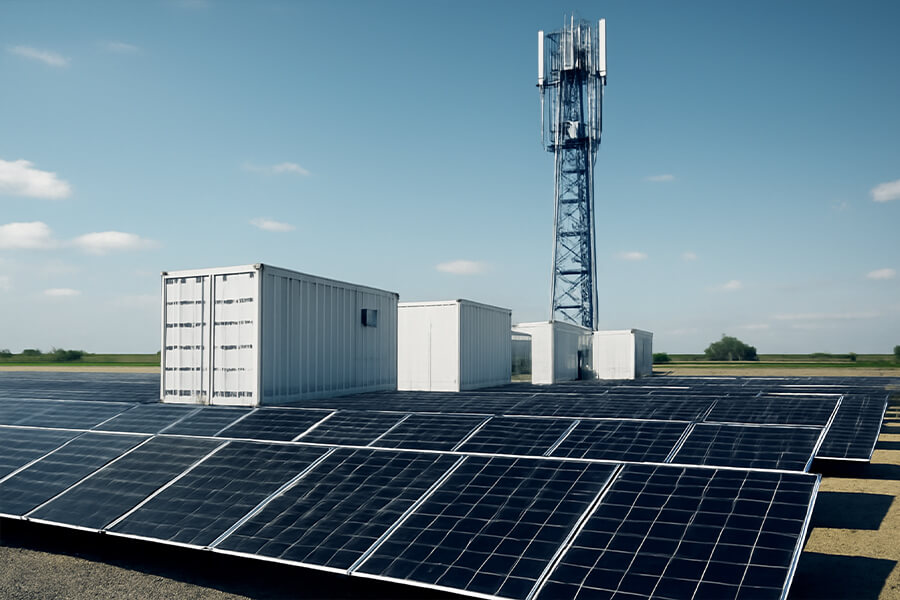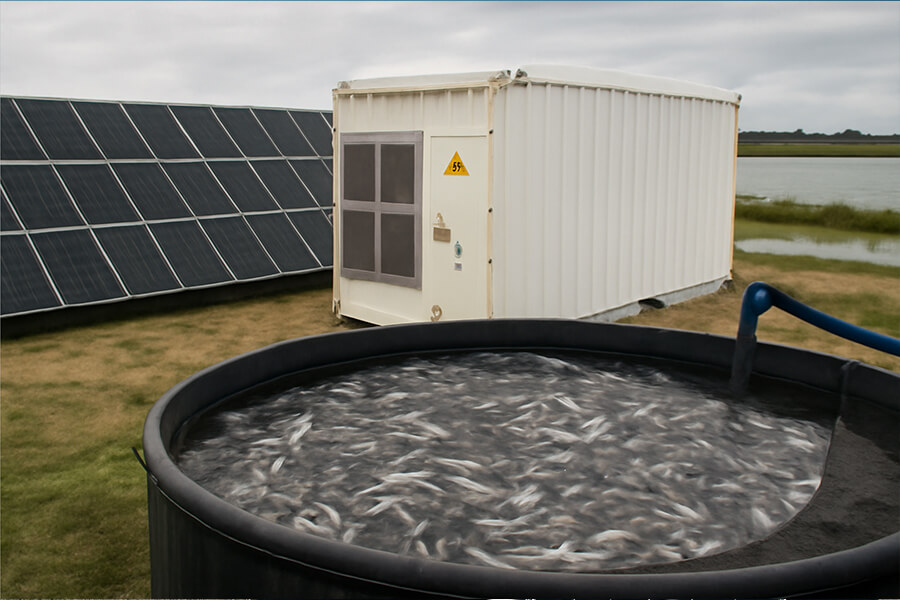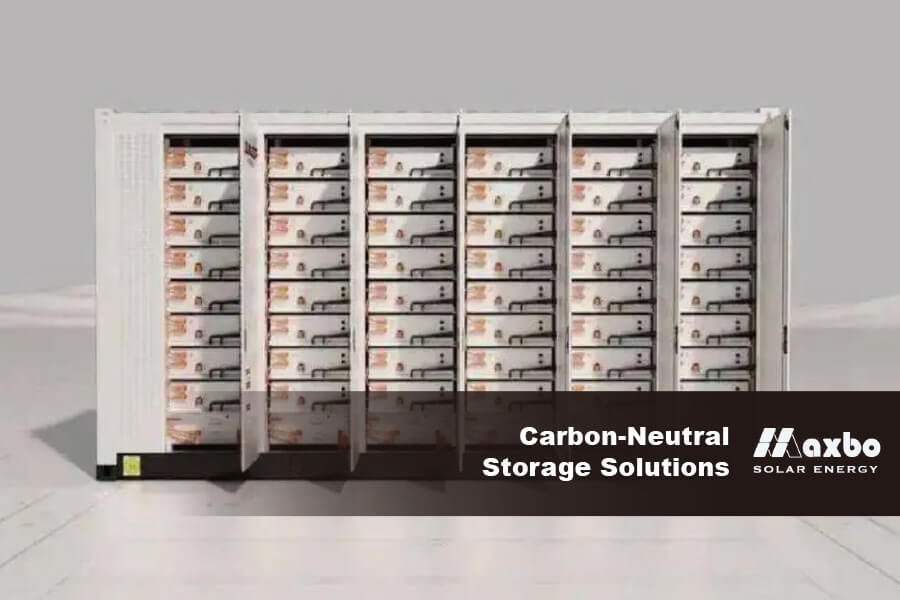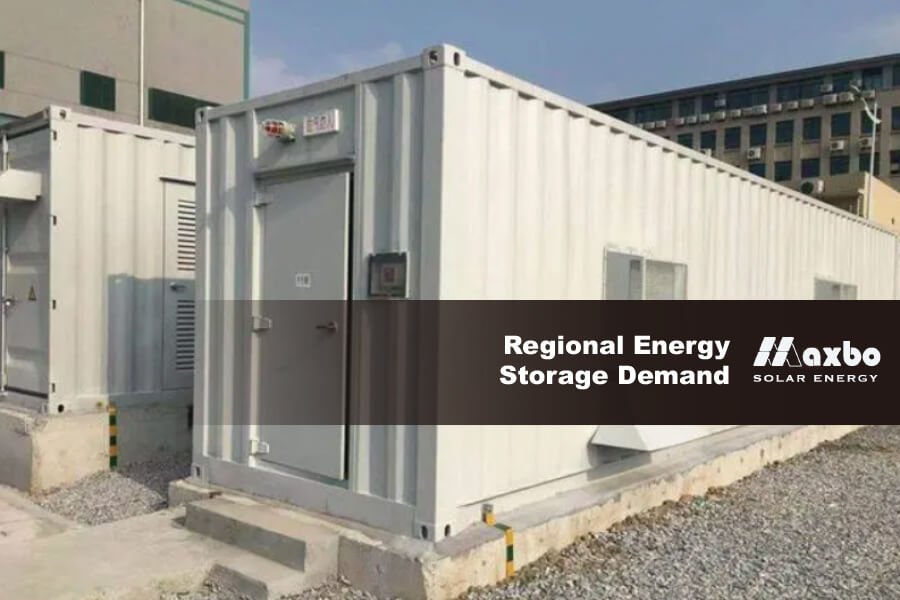50kW Battery Storage Solutions: The Ultimate Guide to Empowering Your Business
In today’s energy landscape, businesses are increasingly turning to battery storage solutions to enhance efficiency, reduce costs, and support sustainability goals. A 50kW battery storage system strikes a balance between capacity and cost-effectiveness, making it an excellent choice for various commercial applications. This detailed guide will explore the essential components of a 50kW system, including configuration options, pricing, and how Maxbo Solar can help you achieve optimal performance and savings.
Table of Contents
ToggleWhy Choose a 50kW Battery Storage System?
A 50kW battery storage system is designed to deliver 50 kilowatts of power, making it suitable for a wide range of commercial needs. This capacity offers significant benefits:
- Energy Independence: Reduce reliance on the grid and enhance energy security by storing excess energy for use during peak demand periods or outages.
- Cost Efficiency: Lower energy costs by utilizing stored energy when electricity prices are high and charging the system when prices are low.
- Sustainability: Maximize the use of renewable energy sources and reduce your carbon footprint by integrating a 50kW system with solar panels or other green energy solutions.
Reference:
- U.S. Department of Energy. (2022). “Energy Storage for Grid Services.” Retrieved from Energy.gov
Key Components and Configuration Options for a 50kW Battery Storage System
When investing in a 50kW battery storage system, selecting the right components is crucial for achieving the best performance and value. Below are the key elements and options to consider:
1. Battery Type
- Lithium-Ion Batteries: These batteries are known for their high energy density, long cycle life, and low maintenance requirements. They are the most popular choice for commercial applications due to their superior performance and reliability.Benefits:
- Higher energy density means more power storage in a smaller footprint.
- Longer lifespan compared to other battery types.
- Lower maintenance and replacement costs.
- Flow Batteries: Flow batteries offer scalable storage solutions with long operational lifespans, making them ideal for applications with frequent cycling needs and extended discharge times.Benefits:
- Scalable design allows for easy expansion.
- Long cycle life and low degradation.
- Suitable for applications requiring long discharge durations.
Reference:
- National Renewable Energy Laboratory (NREL). (2021). “Battery Storage Technologies.” Retrieved from NREL
2. Inverter Type
- String Inverters: These are typically used in smaller systems and convert DC power from the batteries into AC power for use in your facility. They are cost-effective but may not offer the highest efficiency for larger systems.Benefits:
- Cost-effective for smaller systems.
- Simple installation and maintenance.
- Central Inverters: Ideal for larger systems, central inverters handle multiple battery strings and offer better efficiency and performance for high-capacity setups.Benefits:
- Higher efficiency and performance for larger installations.
- Better suited for high-demand applications.
Reference:
- International Renewable Energy Agency (IRENA). (2020). “Renewable Energy Technologies: Cost Analysis Series.” Retrieved from IRENA
3. Battery Management System (BMS)
A Battery Management System is essential for ensuring the optimal operation of your battery storage system. It monitors battery health, manages charging and discharging cycles, and ensures safety.
Benefits:
- Real-time monitoring of battery performance.
- Management of charging and discharging to extend battery life.
- Enhanced safety through protective measures and alerts.
Reference:
- IEEE Spectrum. (2020). “The Importance of Battery Management Systems.” Retrieved from IEEE Spectrum
4. Scalability
Scalable battery storage systems allow you to start with a 50kW setup and expand as your energy needs grow. This flexibility helps manage initial costs and adapt to future requirements.
Benefits:
- Modular design allows for incremental upgrades.
- Adaptable to changing energy needs and budget constraints.
- Reduces upfront investment and allows for future expansion.
Reference:
- Renewable Energy World. (2021). “Modular Battery Storage Solutions.” Retrieved from Renewable Energy World
Configuration Example for a 50kW Battery Storage System
Here’s a practical configuration for a 50kW battery storage system:
- Battery Pack:
- Type: Lithium-Ion
- Capacity: 50 kWh
- Features: High energy density, long cycle life, low maintenance.
- Inverter:
- Type: 50 kW Central Inverter
- Features: Efficient energy conversion, suitable for high-capacity systems.
- Battery Management System (BMS):
- Features: Real-time performance monitoring, safety management, charge and discharge control.
- Additional Components:
- Protection Equipment: Circuit breakers, safety disconnects, and wiring.
- Installation and Support:
- Services: Professional installation, system integration, and ongoing maintenance.
Pricing and Cost Estimates
The cost of a 50kW battery storage system varies based on components and configurations. Here’s a breakdown of estimated costs:
- Lithium-Ion Battery Pack: $200,000 – $250,000
- Central Inverter: $15,000 – $20,000
- Battery Management System: $10,000 – $15,000
- Installation and Additional Components: $20,000 – $30,000
Total Estimated Cost: $245,000 – $315,000
Reference:
- BloombergNEF. (2023). “Battery Pack Prices Fall as Market Ramps Up with Market Average at $132/kWh in 2023.” Retrieved from BloombergNEF
Maxbo Solar’s 50kW Battery Storage Solutions
Maxbo Solar provides advanced 50kW battery storage solutions tailored to your commercial needs. Our offerings include:
- High-Efficiency Lithium-Ion Batteries: Ensure reliable performance and longevity.
- Advanced Inverter Solutions: Optimize energy conversion and efficiency.
- Comprehensive Battery Management Systems: Enhance performance and safety.
Configuration and Customization: We work closely with you to customize your 50kW system, ensuring it meets your energy needs and budget. Our experts will guide you through the selection process, installation, and integration of additional components.
Cost Transparency: We offer detailed cost estimates and assist you in leveraging available incentives and rebates to reduce your investment costs.
For more information and to explore our range of products, visit Maxbo Solar.
Conclusion
A 50kW battery storage system provides a robust solution for managing commercial energy needs efficiently. By understanding the key components, configuration options, and pricing, you can make an informed decision and optimize your energy management strategy.
Maxbo Solar is committed to helping you achieve the best results with our top-tier 50kW battery storage solutions. Contact us today to learn how we can assist you in enhancing your energy efficiency and achieving substantial savings.
References:
- U.S. Department of Energy. (2022). “Energy Storage for Grid Services.” Retrieved from Energy.gov
- National Renewable Energy Laboratory (NREL). (2021). “Battery Storage Technologies.” Retrieved from NREL
- International Renewable Energy Agency (IRENA). (2020). “Renewable Energy Technologies: Cost Analysis Series.” Retrieved from IRENA
- IEEE Spectrum. (2020). “The Importance of Battery Management Systems.” Retrieved from IEEE Spectrum
- Renewable Energy World. (2021). “Modular Battery Storage Solutions.” Retrieved from Renewable Energy World
- BloombergNEF. (2023). “Battery Pack Prices Fall as Market Ramps Up with Market Average at $132/kWh in 2023.” Retrieved from BloombergNEF
Maxbo Solar is here to guide you through every step of selecting and implementing your 50kW battery storage system, ensuring optimal performance and cost-efficiency.
Related Solutions
Related Blogs
BESS Container Telecom Edge Power: Deploy 5G Towers & Data Centers Off-Grid (No Diesel Tantrums!)
行政2025-07-11T17:04:49+08:00July 11th, 2025|Categories: Design, News|
BESS Container Fish Farm Heroes: Stop Fish Fainting During Grid Meltdowns
行政2025-07-11T17:04:35+08:00July 11th, 2025|Categories: Design, News|
Let’s Make Things Happen
Add notice about your Privacy Policy here.
Let’s Make Things Happen
”The Maxbo team of sales consultants will continue to enrich our own expertise and experience to empower the development of sustainable energy with rigor.“
Maxbo CEO
You will need to provide: 1. the amount of electricity used. 2. the type and power of the load. 3. the electricity consumption habits (daytime/nighttime consumption). 4. the need to store electricity. 5. the need to feed electricity to the mains. 6. drawings or address of the installation site. 7. other special requirements
We can provide you with a quotation, a specification for all products, a circuit connection diagram and a diagram of the installation and placement of the PV panels. Any other requirements and adjustments needed can be discussed with our team.
We can meet the needs of most scenarios, whether your application is for domestic, commercial and industrial use, in remote areas, or for grid-level energy storage, we have experienced colleagues to design and deliver the right solution.
Add notice about your Privacy Policy here.
How much solar power do I need?
Most homes need 5–12kW, depending on your energy use and location.
Off-grid vs. grid-tied — what’s the difference?
Off-grid works without the utility grid; grid-tied lets you sell extra power back.
Do I need permits?
Usually yes — check local rules or ask us for guidance.
How long does a battery last?
Depends on size and load. A 5kWh battery can power a fridge for about 40 hours.
Can I upgrade my system later?
Yes, our systems are modular and easy to expand.
Does Maxbo offer installation?
We ship globally and connect customers with trusted local installers.






